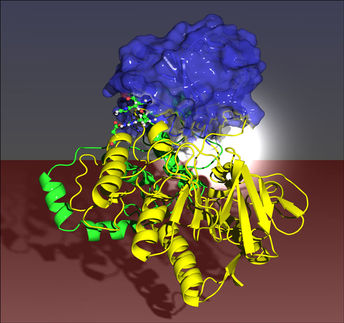Frost & Sullivan: Will Big Pharma Embrace its Orphans?
While most big pharmaceutical and biotechnology companies have traditionally depended on blockbuster molecules, it is estimated that $90.0 billion worth of ethical molecules will come off patent during 2007-2012. The industry is therefore considering "niche busters" – orphan drugs that tackle rare diseases – as potential sources of revenue.
Orphan drugs are intended for the prevention and treatment of very serious rare diseases such as chronic myeloid leukaemia, pulmonary arterial hypertension, gaucher disease and adrenal cortical carcinoma. Frost & Sullivan estimates that the current global market for "niche busters" is around $26.2 billion.
“There are currently 6000-8000 known rare diseases known, however treatment is available for only 200-300 of them,” says Frost & Sullivan Programme Leader A. Shabeer Hussain. “80% of rare diseases are of genetic origin and 20% result due to cancer, infections and other mutations. Rare diseases often affect children under the age of five.”
The term 'orphan drug' was originally coined because the pharmaceutical industry took little or no interest in discovery, development and marketing of drugs for rare diseases. This was mainly due to the small population of patients they affect, making it difficult for companies to gain a return on their investment. It takes more than ten years to develop and market a new drug and it is discouraging to market orphan drugs with no significant profits.
However, in 2000, the EU regulation act encouraged companies to enhance their R&D for developing drugs for rare diseases. This encouragement brought great success to the orphan drugs market and more than 800 applications for orphan drugs were made. 30 companies eventually received approval to market more than 40 orphan drugs in the EU.
“Companies that market orphan drugs look for government benefits as well as exclusivity rights to market the drugs,” explains Hussain. “The regulation on orphan medicinal products approved 10 year market exclusivity in addition to normal patent protection. The European niche buster market is now estimated to be around 22.0-24.0 per cent of the global market.”
Rare diseases generally suffer from a lack of proper diagnosis and treatment. However, EURODIS and other organisations are creating awareness on rare diseases and are also influencing governments to legislate for better quality of life for sufferers.
“The EU parliament should provide more benefits like tax incentives, special status and reimbursements for these orphan drugs,” Hussain says. “This encouragement could create a revolution amongst the pharmaceutical and biotechnology companies for developing and marketing these drugs.”
If you are interested in more information on Frost & Sullivan’s upcoming analysis of European orphan drugs markets due to be published later this year, then send an e-mail to Patrick Cairns using the Contact button below.
Most read news
Topics
Organizations
Other news from the department business & finance

Get the life science industry in your inbox
By submitting this form you agree that LUMITOS AG will send you the newsletter(s) selected above by email. Your data will not be passed on to third parties. Your data will be stored and processed in accordance with our data protection regulations. LUMITOS may contact you by email for the purpose of advertising or market and opinion surveys. You can revoke your consent at any time without giving reasons to LUMITOS AG, Ernst-Augustin-Str. 2, 12489 Berlin, Germany or by e-mail at revoke@lumitos.com with effect for the future. In addition, each email contains a link to unsubscribe from the corresponding newsletter.





















































